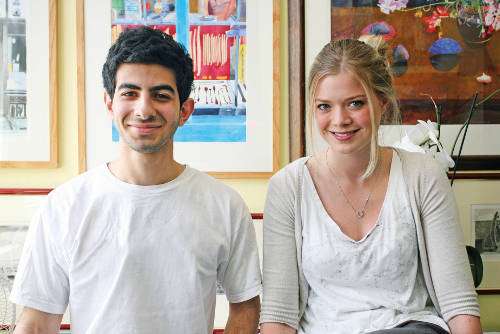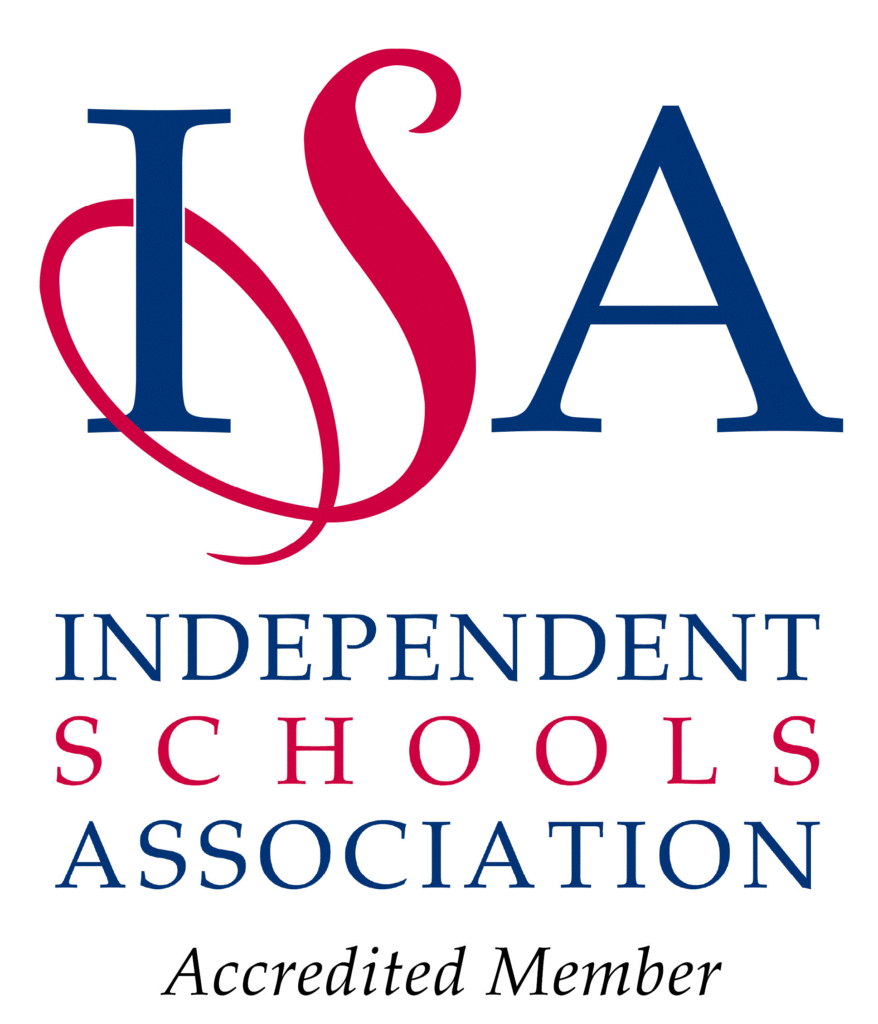WHAT HAPPENS ON A LEVEL RESULTS DAY?
We hope everybody is enjoying a very well-deserved summer break while waiting for A level results day 2024, which will take place on Thursday 15 August. The purpose of this article is to advise A level students about what happens on A level results day and what options are available to them depending on the outcome of their results.
What time are A level results released?
This year, A level results are released to students at 8am. It is not possible to receive results before this time, so please do not try to call us any earlier!
How do I get my results?
We will email all of the students at our sixth form college with their statements of results, but students can request a phone call if they prefer or they can come into the college to pick up a paper copy of their results. Please contact Jason, our Exams Officer, if you have any specific requests on how you would like to receive your A level results as we are much more flexible on this than other schools.
Can I ask for a remark of my A level results?
If you find that you have narrowly missed your target grade or you feel that one or more of your exams were not marked correctly, the exam boards offer a range of post-results services. Students can request a priority copy of a marked paper in the first instance to decide whether or not to request a review of the marking. The exam boards are continuing to offer a free access to scripts service, so no fees will be charged for this. If a review of marking is requested, it is important to understand that no grade protection is offered, meaning that the mark is subject to go up, stay the same or go down, and the outcome cannot be reversed.
Students who would like to request any post-results service should email our Exams Officer Jason as soon as possible and no later than the following deadlines:
Priority review of marking – 22 August 2024
Priority copy of marked paper – 29 August 2024
Non-priority review of marking – 26 September 2024
Non-priority copy of marked paper – 26 September 2024
What if I am not happy with my A level remark – can I appeal?
If you are not satisfied with the outcome of a review of marking, it is possible to appeal this decision with the exam board. These are the criteria under which you can appeal: JCQ Appeals Booklet
The college is responsible for submitting appeals on behalf of our students, so please contact our Exams Officer as soon as possible and within 30 days of receiving the outcome of your remark if you wish to appeal.
Private candidates can submit their appeals directly to the exam board.
How long does a priority remark take?
If you have a university offer which depends on a certain grade, you should opt for the priority review of marking by the deadline listed above. A priority remark normally takes a few days and you are guaranteed to have an outcome within two weeks.
Will my remark result be in time for my uni?
If you want to remark because you have missed your university offer and hope it might increase your grade, you should apply for a priority remark ASAP and also immediately notify your university that you are doing this. UCAS advises that universities may wait until 7 September for the outcome of your remark; however, this is at the discretion of the university and the higher ranking your university, or the more competitive your course, the less likely the university is to wait for remark results. You should therefore go straight ahead with a priority remark rather than ask for a copy of your exam paper first. Remember that remarks can go down as well as up, but sometimes it is worth a gamble if you have already missed your uni place. If you are not sure what to do, talk to us for advice on the best course of action!
What does my UCAS application status mean?
When you log in to UCAS on results day your application status will be confirmed/ unconditional, still conditional, or you may be in Clearing.
For further information about what your application status means, and the options that are open to you, please read our dedicated article on UCAS options on A level results day.
When does UCAS open?
UCAS Track, where you can check the status of your application, will also open on 8am on 15 August 2024. At that time you will be able to see whether either your firm or insurance offers are confirmed (unconditional), are still conditional (perhaps meaning information is outstanding), or if you are in Clearing. Make sure you check your A level results as well as UCAS as you can sometimes get confirmed at a university even if you don’t meet the grades.
How can I get help with UCAS?
If your uni choices are still showing as conditional it may be that some of your results have not transferred electronically from the exam board or that you forgot to send in requested paperwork. In this instance, the first thing you need to do is call your university to find out what is happening – be patient as you may need to wait on the phone.
After that, call us and if we need to send results on your behalf please talk to Jason our Exams Officer. Otherwise, our Director of Studies Virginia will be able to advise on any other issues that are arising with UCAS.
We strongly advise you not to be away on A level results day. If you are in Clearing or there are any issues that you would like us to help you with, it will be much better to come into college asap so we can give you moral support and advice to get things sorted out quickly. We have normally resolved all issues by 12pm, but if someone is overseas and hard to reach it makes things a lot more difficult.
I got my firm offer – what do I do next?
Fantastic – time to start celebrating! UCAS will state which university is confirmed – this means you have been firmly accepted and you are definitely going to your chosen university. Read any additional information carefully because, for example, some universities will also ask you to confirm your acceptance of the firm offer. Each university has a different process so see what they say and ask us if you are still not clear.
Can I be offered a different course?
You might find that although your university has offered you a place, it is not the same course which you originally applied for. If this happens, you will be informed on your UCAS application that you have an offer for a changed course. In this case, you should carefully read the details of the changed course and make sure you get in touch with us to discuss whether or not you would be happy to accept this. If, for example, you have been offered a foundation course at your firm choice university and would rather go to your insurance choice than spend an extra year studying at a lower level, you can decline your place.
What if I get better grades than expected?
If you get better grades than expected, you might want to consider ‘trading up’ and seeing if you can go to a better university or change to a more competitive course. The way you need to do this, however, is by ‘Declining’ your confirmed choice and putting yourself into Clearing. Obviously this needs careful consideration and it’s important to talk to your UCAS adviser and family first. If you do want to trade up, the best thing to do is search in Clearing as quickly as possible as the best places get snapped up quickly, call that university to see if they will make you a formal offer, and only then – after careful consideration! – decline your current place and apply to the new university through Clearing. The last date you will be able to decline your place on your UCAS application is 4 September.
Can I defer my university place?
Students have the option to apply for deferred entry, i.e. for the following academic year, when they make their UCAS applications. If this is the case and your place is confirmed your deferment has already been agreed by the university.
If you are making a more last-minute decision, perhaps because you want a gap year or have a job opportunity, you will need to contact the university to ask them if they are prepared to defer their offer.
You can also only request to defer if you have met the conditions of your offer this summer. If you have not made the grades, then you will need to make a new UCAS application the following year, and you may also need to retake your A levels to improve your grades.
Please note that for very competitive courses universities are less willing to defer because they assess applicants each year and rank in terms of the field of competition that year.
If there are medical or contextual reasons for your deferral the universities will almost always agree. If you need help with this please speak to our Director of Studies, Virginia.
What if I don’t want to go to my uni?
If you have changed your mind and decided you don’t want to go to your university, you can decline your place and look for a different option in Clearing. However, you should think carefully before making a snap decision and get advice at college and discuss with your family. You should also research what alternatives are available in Clearing before turning down your current place.
Rather than being hasty it might actually be worth taking a gap year and reapplying next year so that you get a full range of options. Many students drop out of courses because they are not really suitable and it is much better to make sure you are studying what is right for you. At Westminster Tutors we are always happy to support what is called a ‘post qualification application’ so Virginia will be happy to help you with a new application in autumn.
How does Clearing work?
Clearing is like a huge virtual marketplace where universities are trying to fill courses where they still have places, and students are shopping around for the best courses/ offers they can get with their A level grades.
Students need to be bold and brave and get on the phone to try to secure one or more decent offers. Sometimes it is necessary to wait on the phone a long time, so it is important to make sure you have minutes on your phone and also that you have a good internet connection.
Some Clearing places are shown on UCAS from 5 July, but many are only released on results day, which is on Thursday 15 August in 2024. This means that A level results day is also the key day for Clearing and we recommend that students act as swiftly as possible. Even if you are really disappointed by your grades, you need to dust yourself off and go for it!
Universities will also publish their own Clearing vacancies on their websites, with this information going live on A level results day. If you really wanted to go to a particular uni this is a good place to start. However, be aware that universities do not always update availability as quickly as UCAS so the UCAS Clearing listings can be a little more reliable as places start to be taken up.
At Westminster Tutors, we have had very few students in Clearing over the past five years, but if you are in Clearing we recommend you come into college straight away (you can bring your parents with you for support) and Virginia will give you advice on how to get things sorted, as well as speak on the phone on your behalf, if necessary and you give the uni your consent. Amazingly, with our approach, we have normally finished with Clearing by around 12 pm, but the pace is intense!
Although the main action in Clearing happens on A level results day, Clearing does in fact run until 21 October, so there are many universities that are still recruiting right up to the start of term.
Can I go into Clearing with my A level results?
Many students don’t realise that they can actually put in an ‘open’ application for Clearing even if they didn’t apply to UCAS earlier. This UCAS application can be completed in July or August, and you do not put in university choices. You still need to write a personal statement, which can be more general, and someone will still need to write a reference for you. If possible, speak to your college for advice and support on this.
So you can’t apply in Clearing without completing a UCAS application, but you can apply with your A level results and you may just find the perfect place, so it is never too late to have a go. In our experience students have often felt doubtful or didn’t feel confident enough to make a UCAS application earlier in the year, but by the time they have finished their A levels they may have a much clearer idea of what to do.
When does Clearing finish?
Clearing runs all the way through to 21 October, although the more competitive universities and courses will have likely been snapped up much earlier. In addition, many highly selective universities do not enter Clearing at all. At Westminster Tutors, we normally complete all Clearing activity on results day itself as this ensures that any students who are in Clearing or choose to put themselves into Clearing get the very best places available. Indeed we often manage to place disappointed students at far better universities than they had imagined!
Can I do A level retakes instead of Clearing?
Of course we are hopeful that everybody achieves their desired results and is confirmed at their first choice university, but if this is not the case, help is at hand. Westminster Tutors has a proven track record of supporting A level retake students to improve their grades. Our average retake improvement is 1.5 grades, and our A level resit students also secure places at some of the best universities in the country.
Although there has been an autumn retake exam session in previous years, this will not be available in October 2024, so the next A level resit opportunity will be in June 2025. An exception to this is the international A level, which has exam sessions in October 2024 and January 2025, depending on the exam board; however, we do not offer these qualifications at our exam centre.
Does retaking A levels look bad?
No it does not! In the past A levels were modular and universities did not look quite so well on A level retake students but now A level results are based on final exams universities have become a lot more flexible. This is particularly the case in recent years when students’ studies have been disrupted by covid and the lockdowns.
There are, however, a few exceptions where retaking A levels could be a problem for future applications. For Medicine, for example, some medical schools will not consider retakes, some will only consider retakes in exceptional/ strongly mitigating circumstances, and some of them may also require a minimum level of achievement in the first sitting, i.e. only missing the required offer by one or two grades. For other very competitive universities (Oxford, Cambridge, Imperial, and a few others), retakes will only be considered in exceptional circumstances.
If you are seeking to apply for a very competitive university or course do seek expert advice from our Director of Studies, who will be able to advise on the best strategy. You can also contact universities one by one to check their admissions policy on retakes as it is important not to waste one or more of your five UCAS choices on universities which will not consider your application.
Which A level subjects can you retake?
All A level subjects are available for students to retake next summer. At Westminster Tutors, we offer a wide range of subjects and exam boards, so students can enrol on tailor-made A level retake courses which suit their individual requirements. In subjects such as English and History, you can even continue with the same topics and texts you studied previously, as we have expert teachers with specialist knowledge and experience, so there’s no need to worry about adapting to a new course.
Can I carry over my NEA or practical mark when I retake?
For A level subjects such as English, History and Geography, which include a non-examined assessment (NEA), it is possible for students to carry forward their mark in that particular component when they retake. You will not need to re-submit any work and the NEA will not be re-marked. However, you are not obliged to carry forward your NEA, so if you would like to improve your mark and submit a new piece, this is also an option.
Similarly, the practical endorsement grade for sciences and the oral exam mark for modern foreign languages can be carried forward when retaking these A level subjects.
How many times can I retake A levels?
There is no restriction on the number of times you can retake A levels as long as the specification is still being offered. If a new specification is introduced, there is usually one final resit opportunity provided to students for the outgoing specification.
How long does my A level retake course take?
At Westminster Tutors, there are two types of A level retake course: a one-year retake course from September to June, and a six-month course from January to June. Most of our A level retake students enrol on a one-year course, as it gives them more time to look back at the subject content and regular exam practice until the summer exams. If students need to make university applications, it is also desirable to start the course in September in order to obtain the necessary predictions and references to meet the UCAS deadlines.
How much does it cost to retake A levels?
A one-year A level retake course at Westminster Tutors costs £13,400 for one subject, £24,000 for two and £34,500 for three subjects, while a January to June course is charged at £8,300 per subject. Our fees cover the cost of tuition, study skills and pastoral mentoring, a personal tutor, UCAS support and full access to the college facilities and activities. A level exam fees are charged separately at £350 per subject.





